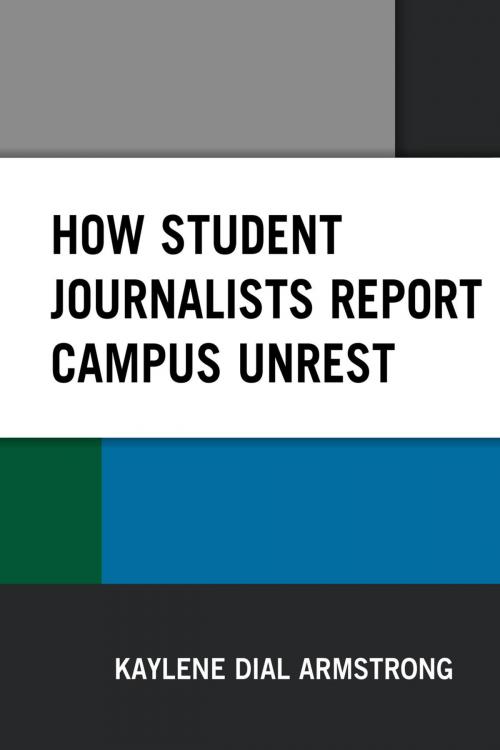How Student Journalists Report Campus Unrest
Nonfiction, Reference & Language, Education & Teaching, History, Social & Cultural Studies, Political Science, Government, Public Policy, Americas, United States, 20th Century| Author: | Kaylene Dial Armstrong | ISBN: | 9781498541169 |
| Publisher: | Lexington Books | Publication: | November 22, 2017 |
| Imprint: | Lexington Books | Language: | English |
| Author: | Kaylene Dial Armstrong |
| ISBN: | 9781498541169 |
| Publisher: | Lexington Books |
| Publication: | November 22, 2017 |
| Imprint: | Lexington Books |
| Language: | English |
Journalists are trained to tell the stories of others and leave themselves out of their writing. Student journalists are no different. They spend their days on their college newspaper writing about what happens to others, especially when what is happening involves protests, sit-ins, riots, hunger strikes and other unrest on the very campuses where they also attend school. Now some of these former student reporters and editors tell their own stories of some of the challenges all student journalists face in reporting events that most administrators would rather see not covered at all.
For some, this is the first time the stories of what happened in the newsrooms and behind the scenes will appear in print. Some of the issues they discuss include censorship, the role of the newspaper as the conscience of the community, objective and activist journalism and the challenges of reporting crises. The protests covered here represent the many concerns college student protesters have tackled through the decades: integration in 1962, the free speech movement of 1964, racial issues and the Vietnam War in 1968 and 1970, and continuing racial issues in the present.
Many of these former student journalists look back decades to their work in the 1960s. Some discuss a more recent protest. Looking back, they admit they might have done things differently if they had to do it again, yet all are fiercely proud of the work they did in recording the first version of history.
Journalists are trained to tell the stories of others and leave themselves out of their writing. Student journalists are no different. They spend their days on their college newspaper writing about what happens to others, especially when what is happening involves protests, sit-ins, riots, hunger strikes and other unrest on the very campuses where they also attend school. Now some of these former student reporters and editors tell their own stories of some of the challenges all student journalists face in reporting events that most administrators would rather see not covered at all.
For some, this is the first time the stories of what happened in the newsrooms and behind the scenes will appear in print. Some of the issues they discuss include censorship, the role of the newspaper as the conscience of the community, objective and activist journalism and the challenges of reporting crises. The protests covered here represent the many concerns college student protesters have tackled through the decades: integration in 1962, the free speech movement of 1964, racial issues and the Vietnam War in 1968 and 1970, and continuing racial issues in the present.
Many of these former student journalists look back decades to their work in the 1960s. Some discuss a more recent protest. Looking back, they admit they might have done things differently if they had to do it again, yet all are fiercely proud of the work they did in recording the first version of history.















